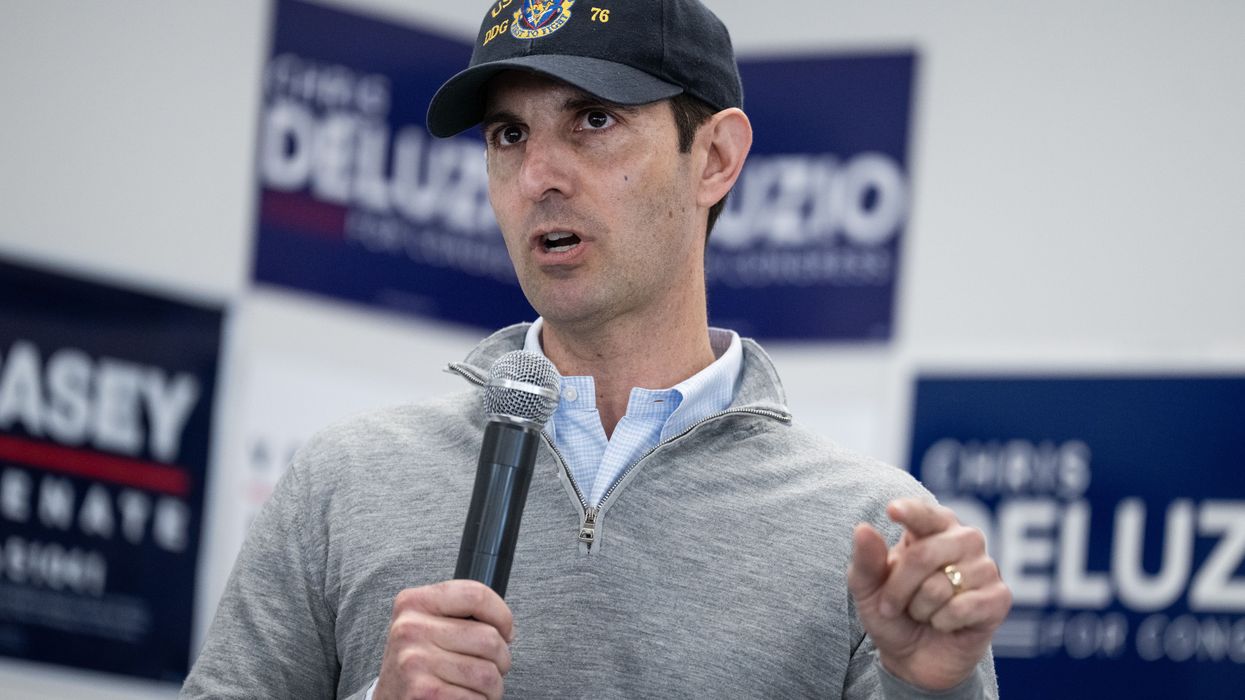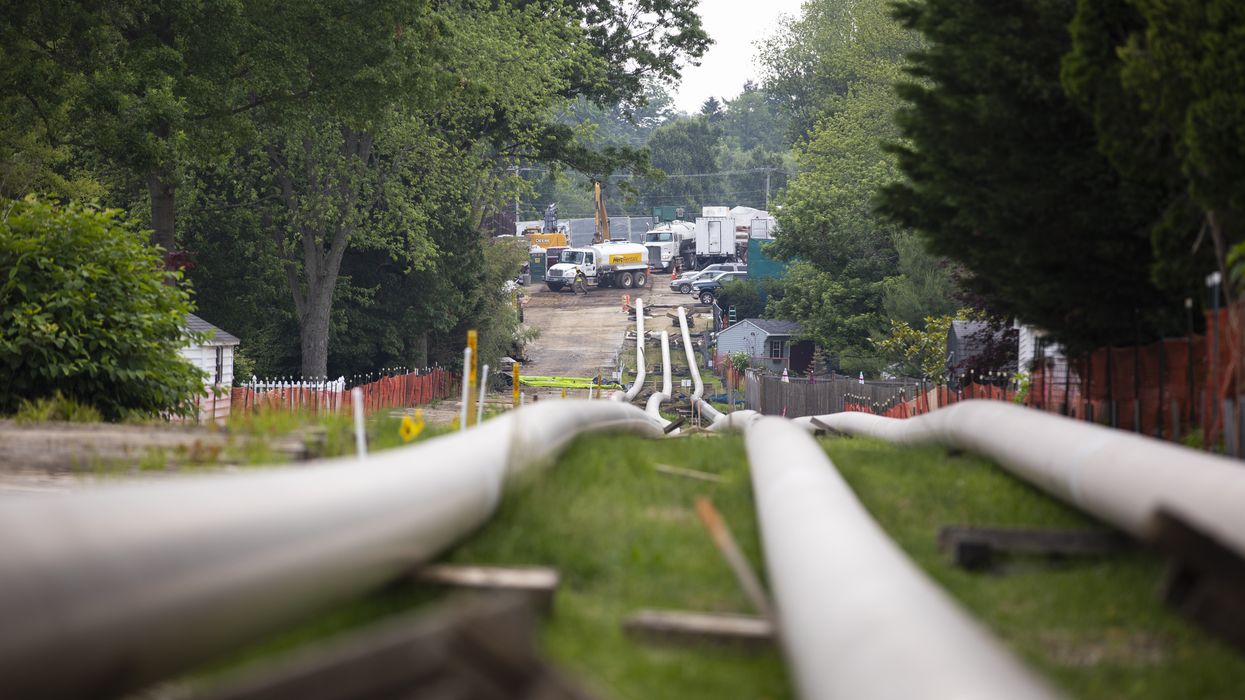Deluzio Gets Bomb Threats After Trump Said Hang Him for Warning Troops About Illegal Orders
"We stand with Rep. Deluzio and every patriot holding the line," said one veteran group. "We reject violence. We reject intimidation. And we will never apologize for defending the oath."
Just a day after President Donald Trump suggested that six congressional Democrats should be hanged for reminding members of the US military and intelligence community of their duty not to obey illegal orders, one of those lawmakers was the target of multiple bomb threats.
A spokesperson for US Rep. Chris Deluzio (D-Pa.) said Friday afternoon that his "district offices in Carnegie and Beaver County were both the targets of bomb threats this afternoon. The congressman and congressional staff are safe, and thank law enforcement for swiftly responding. Political violence and threats like this are unacceptable."
On Tuesday, the former US Navy officer had joined Democratic Reps. Jason Crow (Colo.), Maggie Goodlander (NH), and Chrissy Houlahan (Pa.), along with Sens. Mark Kelly (Ariz.) and Elissa Slotkin (Mich.), for the 90-second video.
Trump—who notably incited the deadly January 6, 2021 attack on the US Capitol while trying to overturn his loss in the 2020 presidential contest—lashed out at the six veterans of the military and intelligence agencies on his Truth Social platform Thursday, accusing them of "SEDITIOUS BEHAVIOR, punishable by DEATH!" and reposting a call to "HANG THEM."
Deluzio and the others have doubled down on their message that, as he says in the video, "you must refuse illegal orders."
In a joint statement responding to Trump's remarks, the six Democrats reiterated their commitment to upholding the oaths they took "to protect and defend the Constitution of the United States," urged every American to "unite and condemn the president's calls for our murder and political violence," and stressed that "we will continue to lead and will not be intimidated."
Deluzio also addressed Trump's comments on CNN, denouncing his "outrageous call for political violence."
Other lawmakers, veterans, and political observers have also condemned Trump's comments—and the grassroots vet group Common Defense pointed to them on social media Friday, after Deluzio's staff confirmed the bomb threats.
"First: Common Defense unequivocally condemns political violence in all shapes, forms, and from any party. Violence has no place in our democracy. We believe in the rule of law. But we cannot ignore the cause and effect here," the organization said.
"The response to quoting the Constitution was a call for execution," the group continued. "Now, Rep. Deluzio, an Iraq War veteran, is facing actual bomb threats. When leaders normalize violence against political opponents, this or worse is the inevitable result."
"We stand with Rep. Deluzio and every patriot holding the line," Common Defense added. "We reject violence. We reject intimidation. And we will never apologize for defending the oath."


